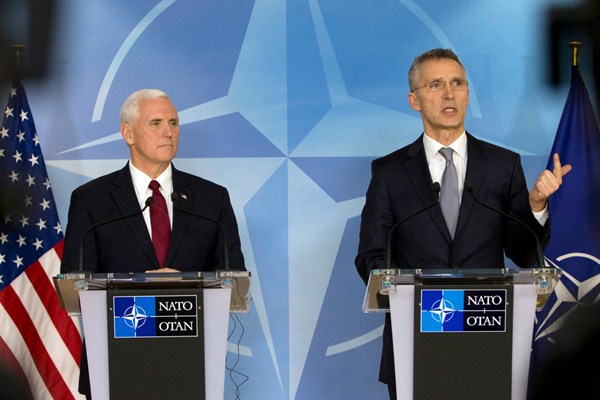U.S. Vice President Mike Pence traveled to Europe over the weekend in an effort to reassure nervous allies about America’s commitment to NATO and the trans-Atlantic relationship. First in Munich, at the annual security conference there, and then in Brussels, Pence delivered a message more in line with what Europeans are used to hearing about the American approach to the alliance.
Like U.S. Defense Secretary James Mattis, who preceded him last week in Brussels, Pence added a pinch of tough love to the healthy dose of soothing affection. Europeans will need to contribute more to their defense if they expect Americans to continue bearing such a disproportionate burden to ensure their security, he said. Mattis, too, spoke of a new “political reality” in the U.S. that had to be taken into account in European capitals. But both men sought to calm European anxieties by reasserting the importance of the NATO alliance to the United States.
If the European allies needed reassuring, it was due to Donald Trump’s provocative and iconoclastic declarations about NATO. As a presidential candidate, president-elect and now president, Trump has famously called the alliance “obsolete” and condemned Europeans for taking advantage of American largesse. In Trump’s mercantilist worldview, America’s security guarantees are a commodity like any other, and they now come with a price tag attached. Coupled with his expressed admiration for Russian President Vladimir Putin and his stated desire to work more productively with Moscow, that has left Europeans wondering whether they will soon be bookended by a U.S.-Russian condominium.

